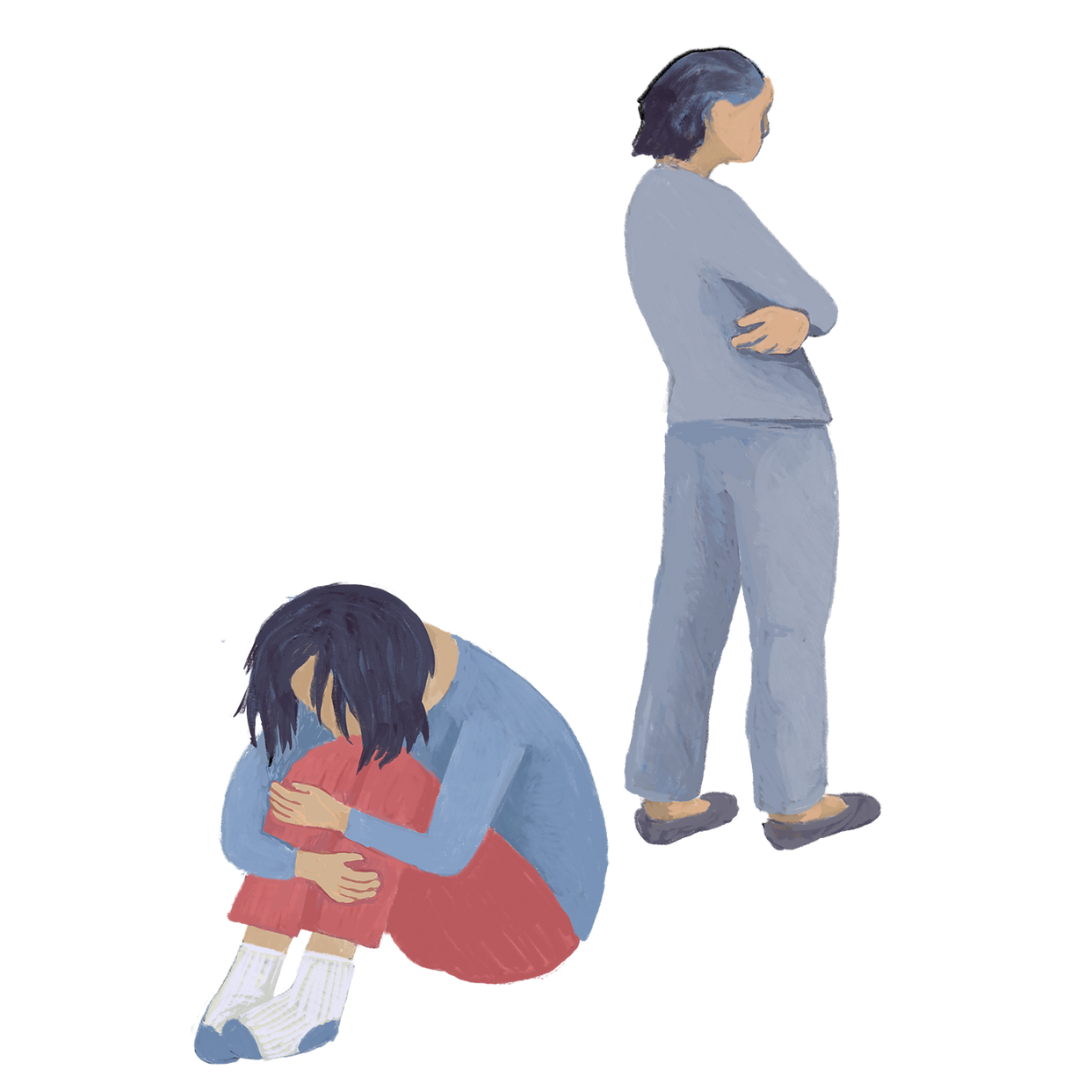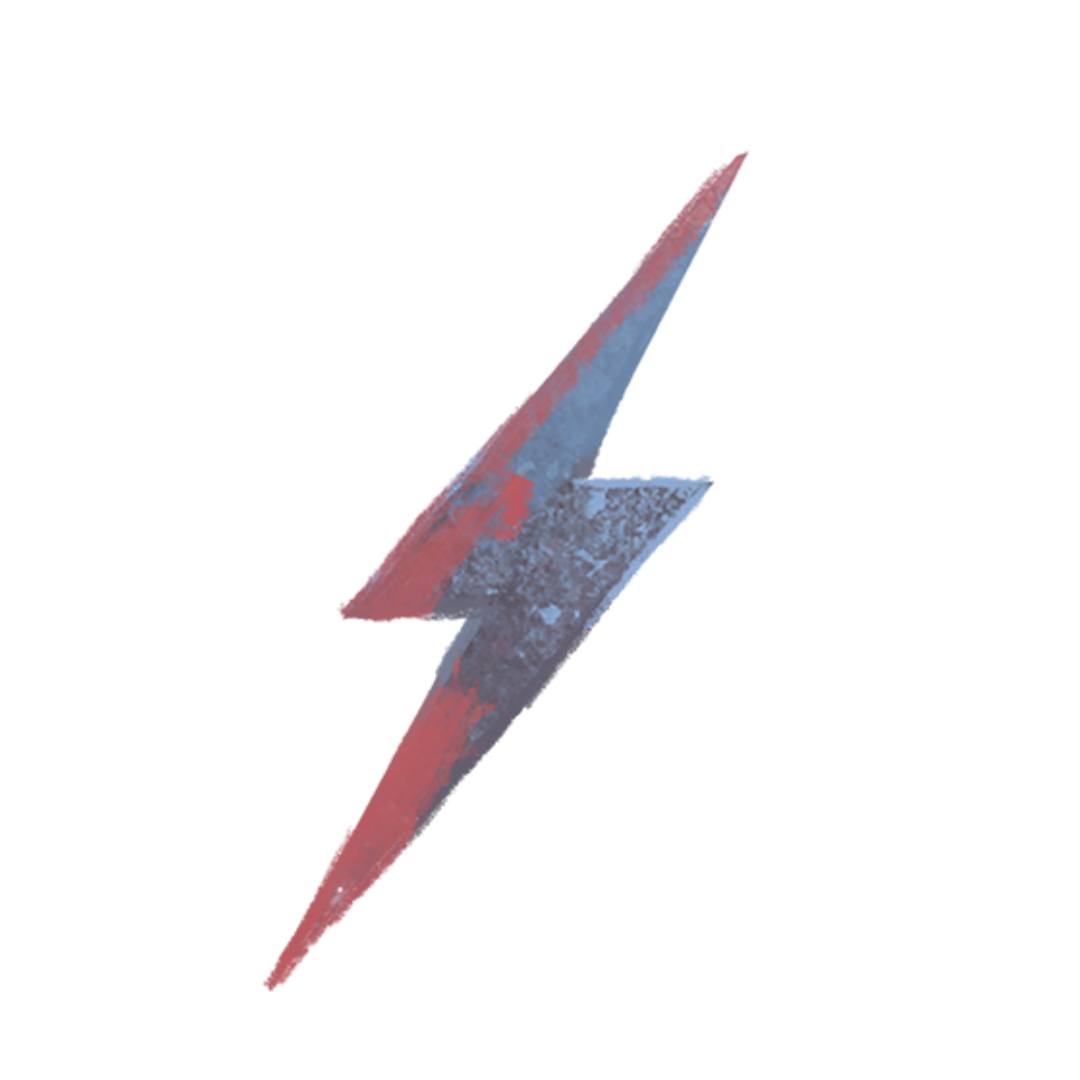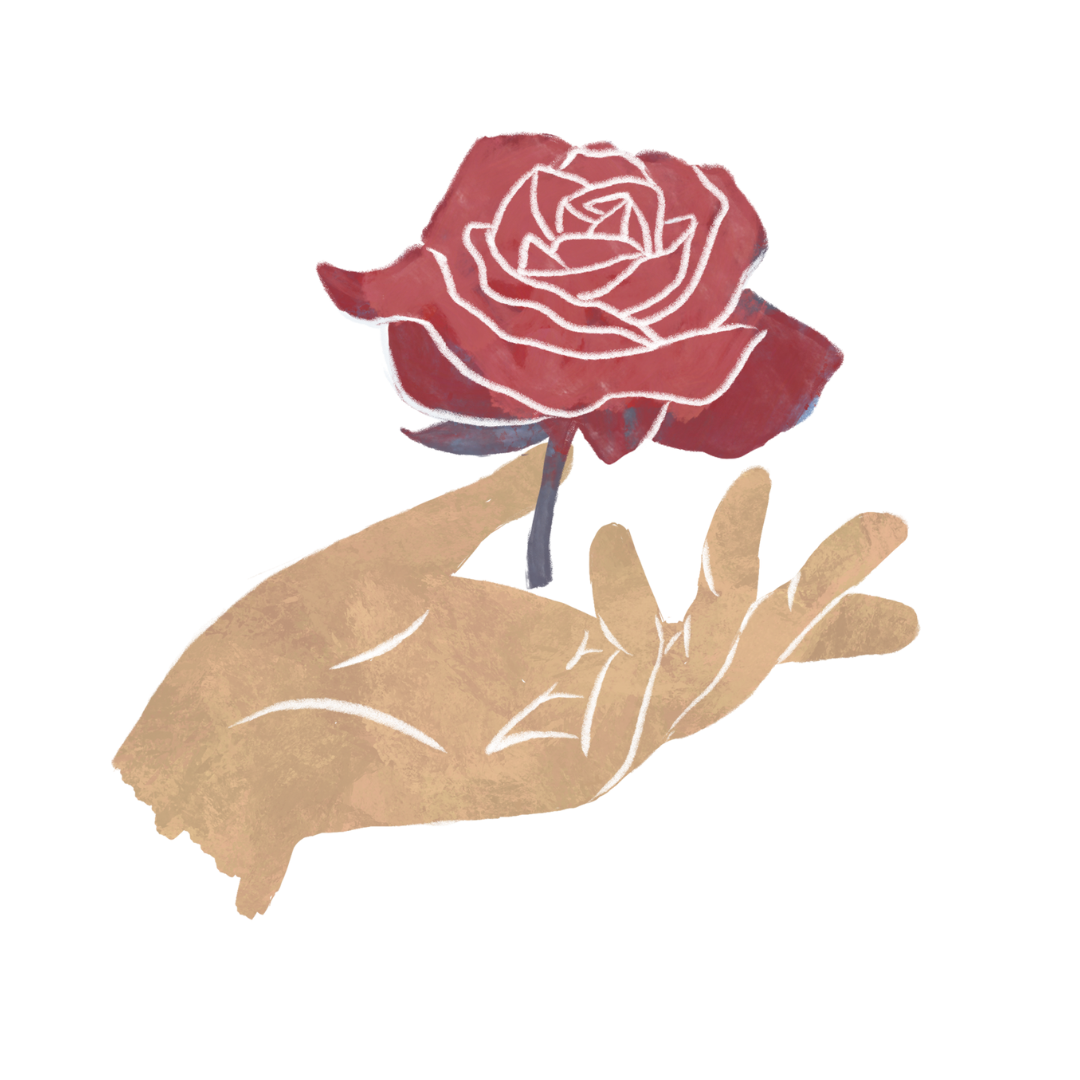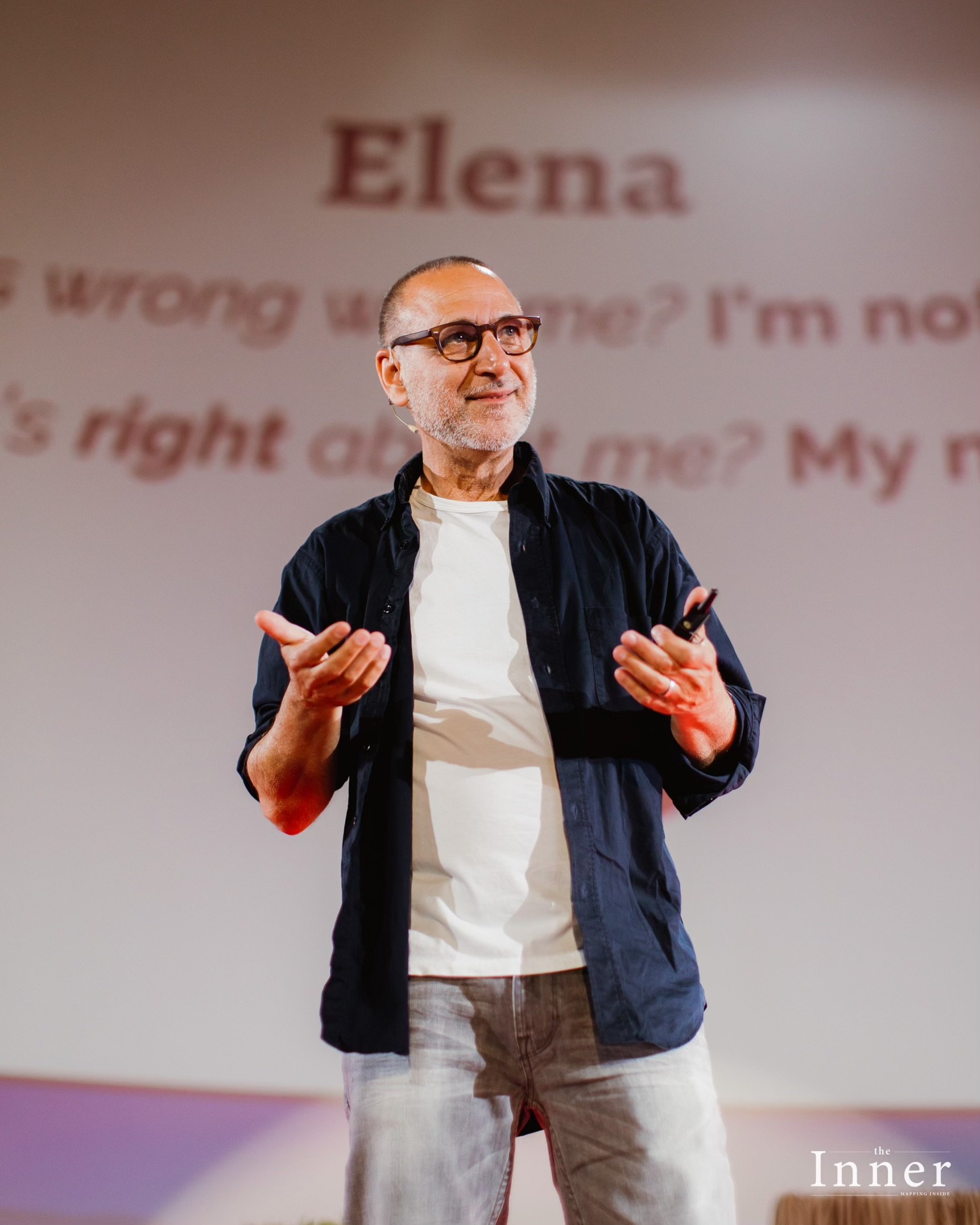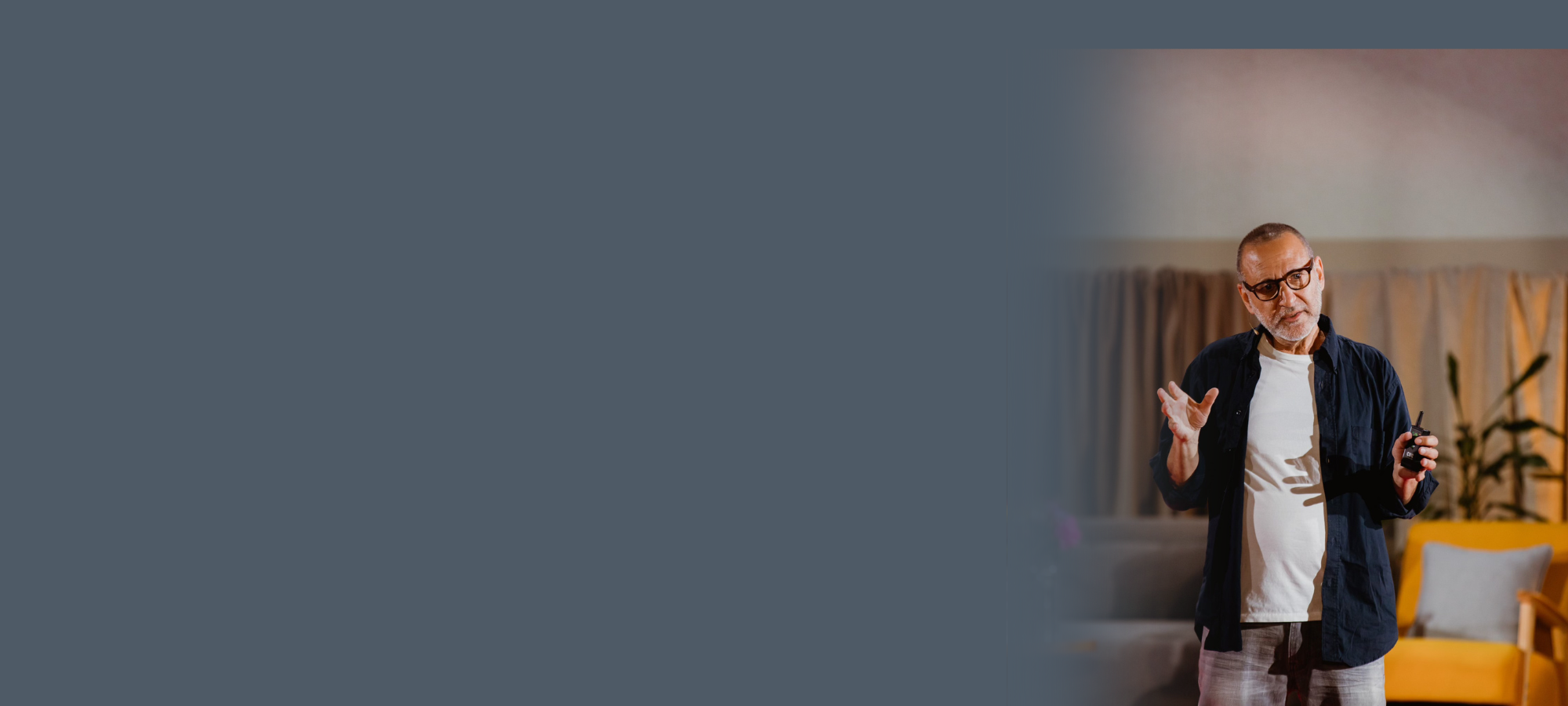
TRAUMA CLINIC
a 7-week Course for Coaches, Therapists and Healers
Wednesdays from September 24th to November 5th - 11am to 1:30pm Pacific
- with David Bedrick, author of The Unshaming Way -

TRAUMA is one of the most urgent topics in the world of healing today. Yet our collective understanding is full of gaps.
Too often, there’s little clarity about what trauma really means, how it shows up in people’s lives, and what it takes to address it. Somatic work has brought enormous breakthroughs, but entering overwhelming experiences without preparation can cause harm. Before we guide people into the body, they need self-awareness, empowerment, and clear ethical safeguards. Without these, the work risks being re-traumatizing rather than healing.
Another overlooked piece is what happens when someone shares their story. In a world that often denies, dismisses, or minimizes trauma, people learn to see themselves through shaming eyes. Instead of compassion, they internalize judgment—and healing becomes about “getting rid” of parts of themselves. This is the shadow of trauma, and unless we address it, even the best methods fall short.
As coaches, healers, and therapists, we must also recognize that most people don’t even know how to tell their own story. They repeat the narratives others have given them: “This is what’s wrong with me. This is what I need to stop.” Trauma teaches people to distrust themselves. Left unchecked, this cycle of self-shaming shapes the very way they try to heal.
There is still so much to learn and teach:
How trauma unfolds from unaddressed abuse
The link between trauma and the ability to set boundaries
The power and intelligence of dissociation
The gifts hidden inside trauma
How to use movement, voice, and the body—not just feelings—as pathways to healing
This is the deeper conversation we need to have.

And what about trauma ethics?
One critical piece is almost never talked about: trauma survivors often fawn or struggle to voice their true needs. This makes it essential for facilitators to develop the ethical grounding and skills to notice subtle cues—so they can tell whether their guidance is truly healing or causing harm.
This Fall, I am going to teach you:
Guide clients into trauma healing that reveals their natural gifts and life path.
Practice trauma ethics by attending to subtle cues—body language, tone, pauses—that shape a healing relationship.
Understand inner criticism and internalized oppression as part of the trauma story.
Support people in recovering boundaries, so they aren’t re-traumatized again and again.
Work with somatic experience through movement, voice, and the body—not just stillness and feeling.
Integrate the intelligence of dissociation into your healing approach.
This 7-week course on trauma is the most complete and ethical teaching I’ve ever offered. Enrollment is open now—reserve your spot today at the special 2023 program cost of $560 (one or two payments).
CLASS DETAILS
Wednesdays from September 24th to November 5th - 11am to 1pm Pacific
All classes are recorded and sent within 24 hours. You’ll have ongoing access to the full course and recordings, so you can revisit the material anytime or move at your own pace.
PAY IN FULL - Early Bird Price
1 Payment of $560
PAYMENT PLAN - Early Bird Price
2 Monthly Payments of $280

Let me give you more context…

Trauma's Impact on Identity &
Trauma doesn’t just affect individuals—it ripples through families, communities, and entire societies. The pain carried by marginalized groups, for example, often stems from systemic violence and historical trauma tied to race, gender, and identity. These aren’t always direct assaults; they’re collective wounds that become “locked-in patterns” in our bodies and psyches.
Seen this way, many so-called “personal” struggles are deeply connected to larger social dynamics. What we call “personality” or “family traits” often reflects survival strategies born of unaddressed trauma.
On the surface, people may appear to function well—working, parenting, contributing—yet parts of them remain “offline” or “frozen” in survival.
This expanded view of trauma is the first step toward real healing. It moves us beyond quick fixes and into addressing root causes—where wholeness and lasting change become possible.

The Crucial Role of the
in Trauma & Healing
While perpetrators cause harm, it’s the witness who holds the greatest power in healing. When pain is met with a loving witness—someone who believes, validates, and supports without gaslighting or blame—the wound, though painful, doesn’t freeze into trauma. Healing begins, and shame no longer takes root in the self.
If, however, we don’t have a loving witness, then we internalize a shaming witness—a voice that tells us we are to blame, that we deserved what happened, and that our natural responses are inherently wrong.
This shame and lack of compassionate witnessing is the true root of trauma.
When an injury is denied, dismissed, or neglected, the healing process freezes. Our natural reactions, including pain, anger, and fear, are suppressed and shamed, becoming locked within us. This frozen state is trauma—a condition not solely caused by the initial harm, but by the absence of validating witnessing.
This is why unshaming, a skilled and aware form of witnessing, is the essence of trauma healing.

Why trauma-informed awareness is
for coaches, facilitators, & healers, not just therapists
As a coach, teacher, healer, or facilitator, you may feel that trauma is outside your scope—that it’s something only therapists should address. I respect that commitment to ethics and boundaries. But here’s the truth: if you’re working with people, you’re already working with trauma.
Many persistent struggles are rooted in it:
Financial difficulties often tie back to intergenerational money trauma.
Relationship challenges stem from early “locked-in” relational patterns.
Procrastination or addictions are coping strategies born from pain.
Feelings of unworthiness or depression often echo past experiences.
These aren’t just “coaching issues.” They are manifestations of trauma—even when they don’t match the narrow, clinical definition.
That’s why trauma awareness isn’t about becoming a therapist. It’s about strengthening your capacity, practicing ethically, and ensuring you do no harm. Without this awareness, it’s easy to unintentionally reinforce the very shame and self-beliefs your clients are struggling with.
This course gives you the insights and foundational skills to recognize trauma’s influence, understand its patterns, and support your clients with greater safety and effectiveness.
The trauma understanding, skills and awareness you will learn in this course are more thorough and complete than anything out there.
Here are the ways this training is on the cutting edge:

Course
This course provides essential awareness and skills for anyone working with others. We'll move beyond conventional understandings of trauma to equip you with the tools and awarenesses to navigate its subtle, yet profound, impact.
-
Understanding Trauma's Broad Reach: We'll expand the definition of trauma beyond major life events, exploring how seemingly minor or unwitnessed experiences can create deeply ingrained patterns.
Understanding Abuse: We'll define abuse not just by obvious acts of violence, but by even seemingly small acts with abuse defined by these four key qualities, each of which require a skill to work on:
An injury or hurt (this is subjective and based on personal experience i.e. what injures one person may not hurt another)
Power differential
An inability to defend oneself
Lack of consent
Understanding these qualities is critical because unwitnessed abuse becomes trauma.
The Problem of Consent in Trauma: Learn why individuals with unresolved trauma may struggle to consciously say "yes" or "no" or “slow down” and how to navigate these complexities ethically and effectively in your work.
Decoding Micro-Communication Signals and Minimal Feedback: Develop critical skills to read subtle, non-verbal cues (somatic signals, body language beyond the obvious) that indicate consent, discomfort, or unspoken needs, ensuring your interventions are truly supportive and non-harming.
Class Date & Time: Wednesday, September 24th - 11am to 1:30pm Pacific
-
Reclaiming Your Innate Strengths: Learn how trauma can "freeze" access to our natural protective instincts and inherent powers. This class will provide insights and initial practices for helping yourself and others begin to recover these vital capacities to feel empowered.
Boundaries as Essential Healing Tools: Discover the critical link between trauma and boundary issues. When the ability to consent (saying "yes," "no," or "maybe") is compromised, it manifests as difficulty setting healthy boundaries in the outer world, perpetuating cycles of harm. Learn how to support yourself and clients in establishing clear, protective boundaries.The Cycle of Re-Injury: Explore how unaddressed inner criticism and porous boundaries create an ongoing cycle of re-injury, both internally and externally, hindering sustained healing.
Class Date & Time: Wednesday, October 8th - 11am to 1:30pm Pacific
-
Understanding the Body's Intelligence: This class goes beyond conventional somatic work to explore the Radical Soma, a holistic approach that honors the body’s full intelligence. We'll delve into the somatic experience of trauma by focusing on the body's natural impulses for feelings, movement, and voice.
Entering Your Story with Care: We will use the foundational skills from previous classes—including working with dissociation, witnessing, and micro-communication cues/feedback—to ensure we approach your trauma story safely and ethically. This is crucial to avoid re-traumatizing a client and to modulate their experience, allowing for a gentle back-and-forth between entering the story and creating distance as needed.
Giving Expression to the Body's Voice: You will learn to access the full range of the body's expressions, including movements like pushing and shaking, as well as vocalizations like screaming, groaning, and crying. These are not merely releases, but intelligent and meaningful expressions of parts of yourself that long to be integrated and heard.
Integrating, Not Just Releasing: Next we want to integrate what arises from these somatic experiences. We will focus on weaving the parts of yourself that were frozen in the past from trauma but are now freer to express into your current life, transforming them into new sources of personal power. Healing means moving toward wholeness and freeing what was once inaccessible.
Class Date & Time: Wednesday, October 22nd - 11am to 1:30pm Pacific
-
This class is an opportunity to wrap our course by answering your questions, practicing the skills we’ve learned over the last 6 weeks, and David will model working with students on real life examples.
Class Date & Time: Wednesday, November 5th - 11am to 1:30pm Pacific
-
The Critical Role of the Witness: Explore the profound impact of how abuse or difficult experiences were witnessed (or not witnessed) by others. Understand how the absence or presence of a "loving witness" fundamentally shapes the development and perpetuation of trauma.
Internalizing the Narrative: Discover how external witnessing, or the lack thereof, becomes internalized, influencing self-perception ("I am a burden," "My needs are too much") and creating the lens through which you view the world.
Unshaming Dissociation: Learn to view dissociation not as a problem to be fixed, but as a natural, organic intelligence. Dissociation is the system's way of creating distance from an overwhelming event, a critical "medicine" that allows for survival. By approaching dissociation with high respect and without the intention to pathologize it, you can begin to work with it as an ally in the healing process.
Class Date & Time: Wednesday, October 1st - 11am to 1:30pm Pacific
-
Inner Criticism as Perpetuated Trauma: Understand how relentless inner criticism isn't just a negative thought pattern, but a continuous re-enactment of past relational violence, keeping trauma alive internally. We'll explore strategies to interrupt this cycle.
We’ll go through these four key practices to effectively work with inner criticism:
Externalize the Critic: Encourage clients to speak the critic’s words out loud so they can be witnessed and heard.
Connect to the Body/Soma: Help clients connect with the physical sensations and feelings that arise in response to the criticism.
Interview the Critic: Engage in a dialogue with the critical viewpoint to understand its potential underlying value or intent.
Integrate the Energy: Go deeper by helping clients integrate the energy of the critic, rather than its negative content or opinion.
**NO LIVE CLASS THIS WEEK - Please watch the provided class recording of David’s ‘Working with Inner Criticism’ Seminar.
-
"It turns out the wound and the gifts are in the same place. Every time we touch the wounds, we are closer to our own gifts.” -Micheal Meade
The "Wounded Healer" and Hidden Gifts: By attending to trauma with care and compassion, we can shift our perspective from simply "getting over" wounds to discovering the powerful gifts and medicine that have been "cooking" within them. This will expand on what we worked on in the last class regarding integration and wholeness. Through the lens of unshaming, learn to see struggles not as something that is ‘wrong with you’, but as a chamber of alchemy where the most potent medicine has been alchemizing. We'll honor the unique process and the intelligence that has been rising up from within, liberating the parts that have been hidden.
From Wounds to Purpose: This process helps clients move beyond the pain and patterns of the past to become more fully themselves.
What deep feelings, inner experiences, and fears are hiding within?
What wisdom and intelligence is there to glean?
What patterns are waiting to heal?
What path of heart emerges out of your client’s story?
When your relationship with trauma changes, pain and suffering transmute into medicine that brings your most authentic self into the world.
Class Date & Time: Wednesday, October 29th - 11am to 1:30pm Pacific
CLASS DETAILS
Wednesdays from September 24th to November 5th - 11am to 1pm Pacific
All classes will be recorded and sent out to all regisitrants within 24 hours of the live class. You will have on-going access to the full course and recordings even after the course ends so that you can revisit the materials and/or go at your own pace.
PAY IN FULL - Early Bird Price
1 Payment of $560
PAYMENT PLAN - Early Bird Price
2 Monthly Payments of $280

“Your way of teaching shame is so beautiful, so important and so bone-fucking-true. I feel so blessed to be able to learn and grow with you. This is so important and you're doing the soul work my man, as a true elder in my life and also for the collective.”
– Emily
“David, thank you for such a truly life-altering experience. Even two days later, I don't fully have words for the depth of what you offered us.”
– Samantha
“David bears gifts that our world in suffering desperately needs. His way of staying curious and listening deeply to what's unfolding has shifted so much of the way I understand my own trauma and the collective trauma we are all being asked to face.”
– Nilaya Sabnis
“Every once a decade or so, I come across a teacher so inspiring, healing so profound, insight so transformative that it instantly becomes a part of my own ‘canon.’”
– Steven
MEET YOUR FACILITATOR:
David Bedrick, JD, Dipl. PW, is a teacher, counselor, and attorney. He was on the faculty for the University of Phoenix for 8 years as well as the Process Work Institute in the U.S. and Poland David is the founder of the Santa Fe Institute for Shame-based Studies where he offers facilitation training to deepen the skills and awareness of healers as well as workshops for individuals to further their own personal development. His embodied way of teaching is far more than informational, students are often brought to tears and face to face with their beauty, power, life path and soul.
David’s passion for studying shame arose from his childhood, growing up with a father who used fists and belts to express his rage and a mother who coped by denying and gaslighting his experience. Forty years of research, teaching, and working with individuals awakened his heart and mind to how the dominant healing paradigm pathologizes people—sees our sufferings and symptoms as something to fix and cure instead of messages to be understood and invitations to deepen our relationships with ourselves and the world around us. David understands our difficulties as “dreams”—invitations to insight, soul, and the divine unfolding of our lives.
David writes for Psychology Today and is the author of four books: Talking Back to Dr. Phil: Alternatives to Mainstream Psychology and Revisioning Activism: Bringing Depth, Dialogue, and Diversity to Individual and Social Change. His new book is You Can’t Judge a Body by Its Cover: 17 Women’s Stories of Hunger, Body Shame and Redemption.
About his fourth book, The Unshaming Way ( North Atlantic Books, 2024) Gabor Mate wrote, '“In this astute work, David Bedrick provides a deep investigation of shame, the most debilitating of our mind states, and offers a workable, practice-based, and accessible path to divesting ourselves from it.” David’s 5th book will also be published by North Atlantic Books and available early in 2026.







